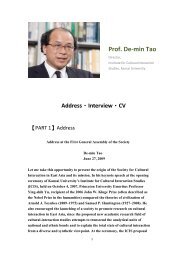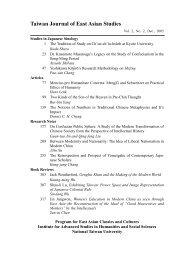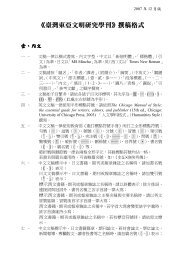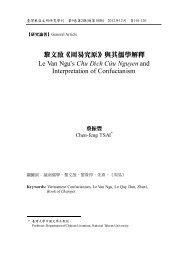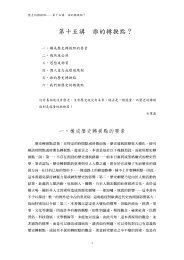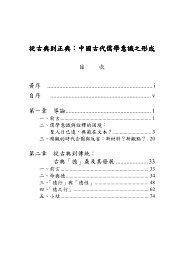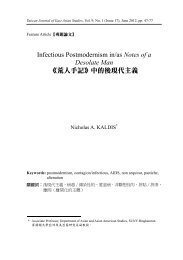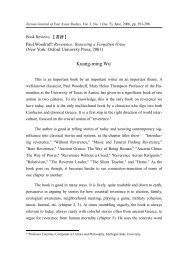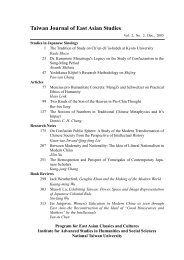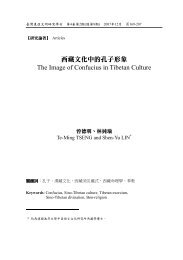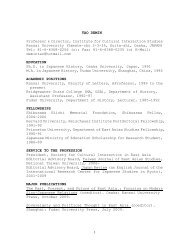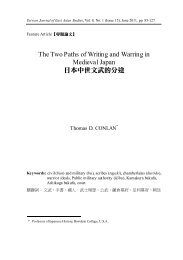臺灣東亞文明研究學刊 - 東亞經典與文化研究計畫 - 國立臺灣大學
臺灣東亞文明研究學刊 - 東亞經典與文化研究計畫 - 國立臺灣大學
臺灣東亞文明研究學刊 - 東亞經典與文化研究計畫 - 國立臺灣大學
Create successful ePaper yourself
Turn your PDF publications into a flip-book with our unique Google optimized e-Paper software.
220 Taiwan Journal of East Asian Studies, Vol. 4, No. 2 (Iss. 8), Dec., 2007<br />
European history gains a new outlook, including ruptures, a high amount of<br />
contingency, ambivalence, unrealized possibilities etc.<br />
In respect to the third attribute of ethnocentrism, namely a monocentric<br />
perspective, Europe definitely is polycentristic. Its historical culture is characterized<br />
by a multi-perspectivity, a pluralism of historical perspectives in the formation of<br />
European identity. It is an open question whether this pluralism and multiperspectivism<br />
can be realized as a new way of a European universalistic approach<br />
to its identity in relationship to all the other cultures in the world. I think, that the<br />
European tradition of universalism includes the possibility for such a pluralism and<br />
a divergence and variety of perspectives. Why do we need such a universalistic<br />
integration? Simply in order to avoid cultural relativism in the processes of identity<br />
formation. Relativism is unable to meet the clash of civilizations, which will be the<br />
logical consequence of ethnocentric identity building in the interrelationship<br />
between different countries and cultures.<br />
A New Universalism in European Historical Culture?<br />
Indeed, I think that a universalistic frame for multi-perspectivity and pluralism<br />
is necessary for Europe in order to interrelate itself to the non-European cultures in<br />
this future directed way to overcome or, at least, to civilize ethnocentrism.<br />
I have already said that most advanced concepts of cultural identity as they<br />
have originated in the so-called axial time of world civilizations have supported and<br />
even sharpened the antagonistic structure of intercultural relationship by using<br />
cultural universals like humankind, reason, liberty, progress, etc. as means of<br />
conceptualizing identity. Why shouldn't we give up this inbuilt tensional<br />
universalism in favour of a general relativism in the claim for validity of differing<br />
identity concepts? The answer to this question is a simple one: Relativism does not<br />
xii



